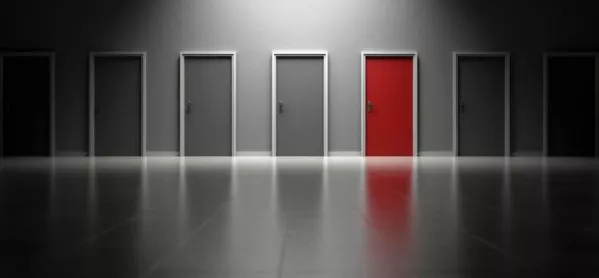In 2025, September’s Year 7 pupils will be making their career or university choices. At the time they make those decisions, the creative industries will be contributing £130 billion to the UK economy. And when these students finish their degrees, 1 million new jobs will have been created within the sector.
At a time of worry about the impact of Brexit on employment, the statistics tell an outstandingly cheery story.
The number of jobs in creative industries rose nearly 20 per cent to 1.9 million in the five years to June 2016, a rate of growth three times faster than UK average employment trends.
There is no doubt about it: from film and television to advertising and marketing, the creative industries are one of the UK’s fastest-growing sectors in terms of both job and value creation.
But in terms of education policy, ministers seem unable or unwilling to see its potential for young people.
Because if the future is bright in terms of job prospects in the creative industries, the same cannot be said of efforts to encourage pupils to take the subjects that support careers in the creative industries.
Creative industries aren’t ‘less important’
With ministers’ continuing refusal to include any creative subjects in the English Baccalaureate - supporting the oh-so-mistaken perception that they are somehow “less important” than maths or the sciences - funding pressures, and a continuing government fixation on science, technology, engineering and maths (Stem) subjects, the barriers are considerable.
Figures published by the Department for Education in January show an overall decline in the uptake of creative subjects by 8 per cent, in addition to a fall of 8 per cent last year. The percentage of state school pupils taking “at least one arts subject” also declined, from 48 per cent to 46.5 per cent. This depressing state of affairs looks likely to continue as the government aims for 90 per cent of Year 10s to be studying the EBacc subjects by 2025.
I see first hand the potential of these exciting industries in my new role. After a career at the BBC, I’m heading up Screen Space, which, in collaboration with MetFilm School and the University of West London, is delivering a brand new BA (Hons) in content, media and film.
The course challenges students to create branded content, fiction and factual entertainment for the audio-visual channels of the modern media environment.
The social space is changing really quickly, and if our students are to adapt, they need the skills to future-proof their careers. None of us knows what’s coming next.
Not everyone is going to be the next Stanley Kubrick or Zoella, but I want them to be able to navigate a rapidly changing media landscape and have the tools to carve out a successful career for themselves. Our students will have a business plan and most importantly they will learn how to tell a story.
It’s the course I would have taken if it had been available when I was 18.
Gender representation
I’m particularly keen to attract more young women to careers in film. While we hear much about the under-representation of women in Stem subjects (particularly engineering), we, too, have work to do.
Bias against female writers and systemic problems are creating a “self-sustaining loop” of inequality in the screenwriting industry, according to a new report commissioned by the Writers’ Guild of Great Britain into gender representation.
For example, just 16 per cent of all working screenwriters in film are female, with only 15 per cent of films having credited female writers.
An even smaller percentage of films (11 per cent) are written predominantly by women and fewer than 7 per cent of films with a budget greater than £10 million are predominantly female-written.
The proportion of television episodes written by women stands at 28 per cent while just 14 per cent of prime-time drama is predominantly female-written.
As the report says, we must ask ourselves what effect this is having on audiences and our culture.
The young women with the talents and creative spark to redress the balance are out there - I meet them every time I give talks in schools.
So please, ministers, give us a helping hand in telling them that there are careers in the creative industries out there, waiting for them.
Dr Lisette Johnston is head of school at Screen Space

